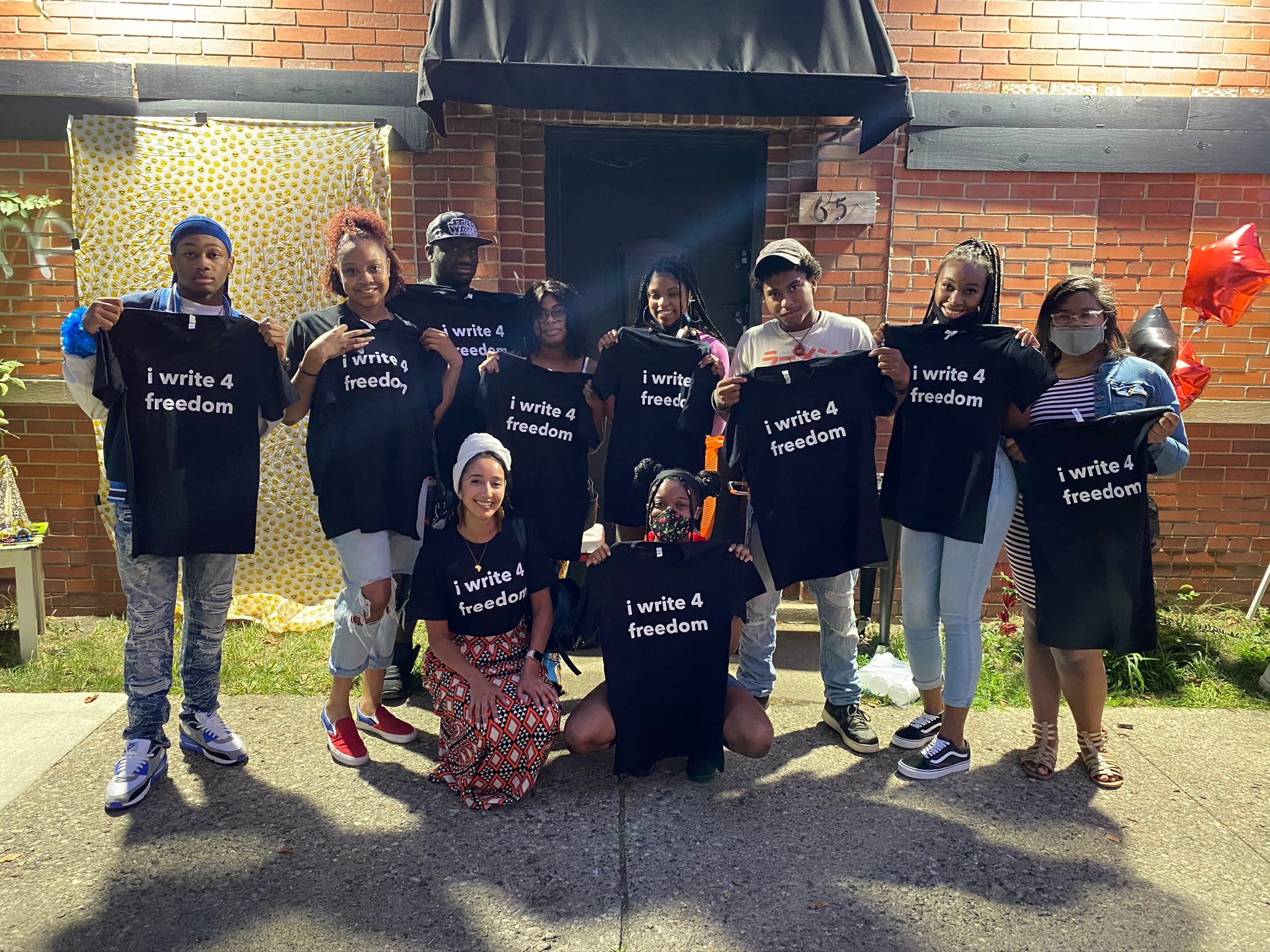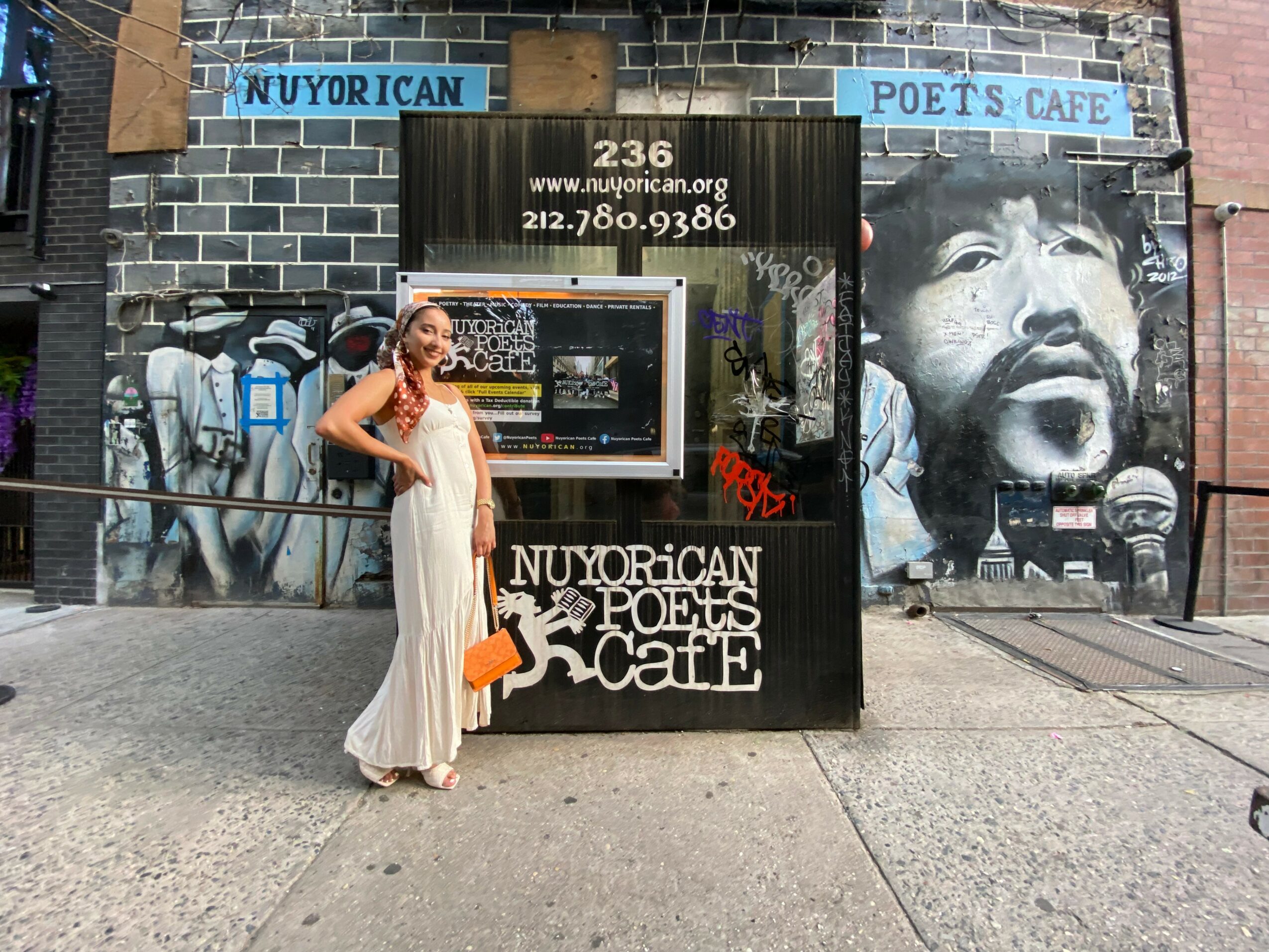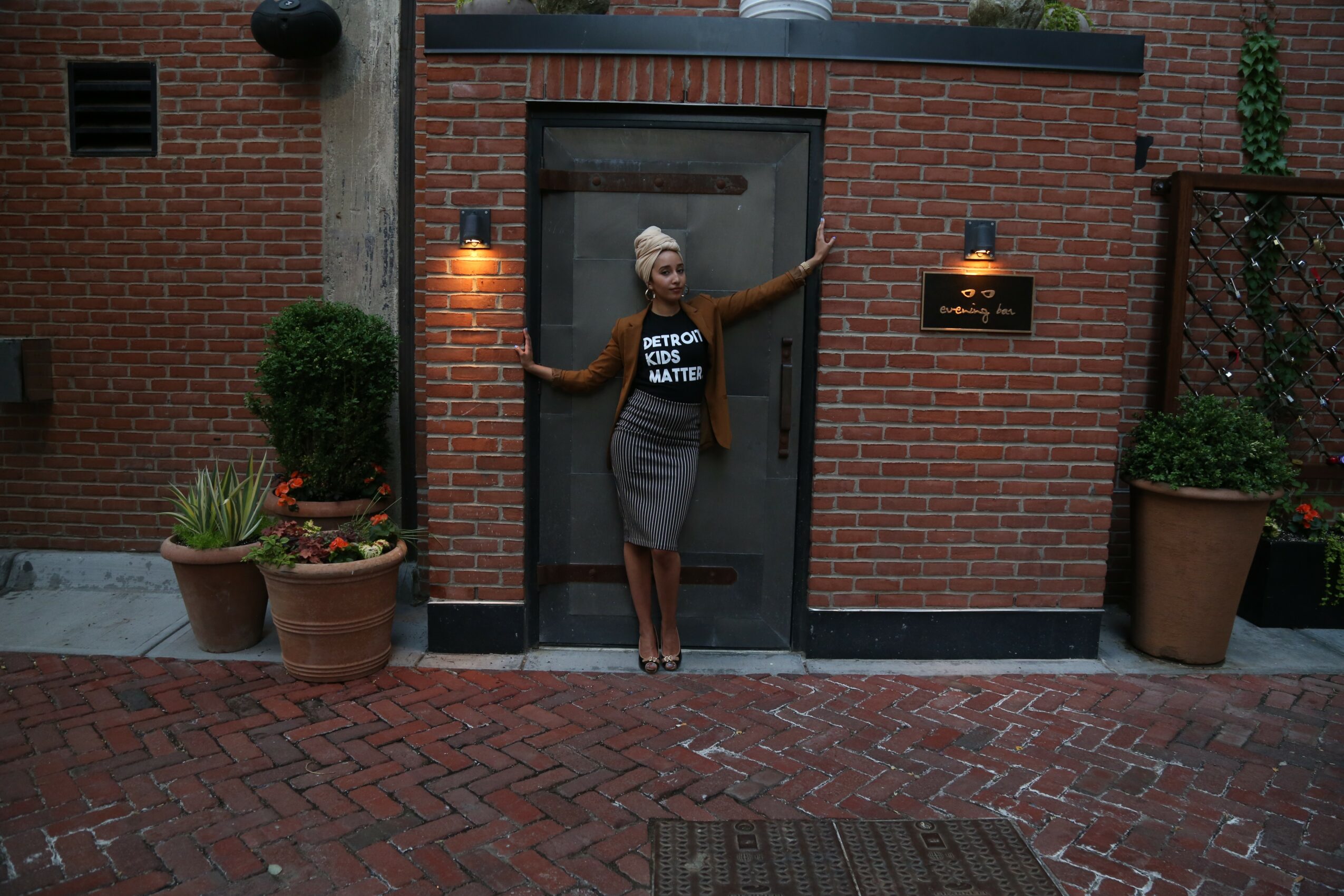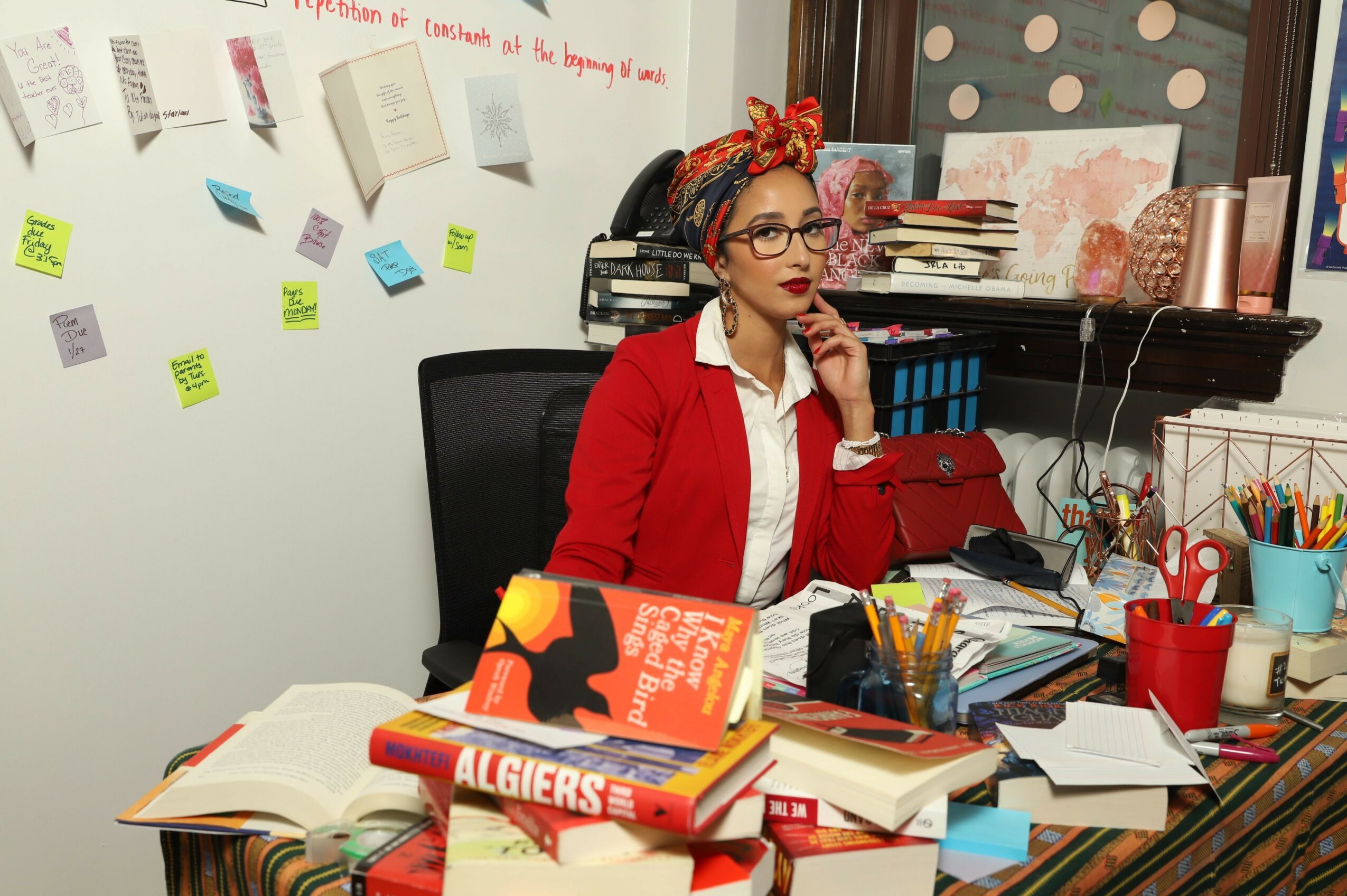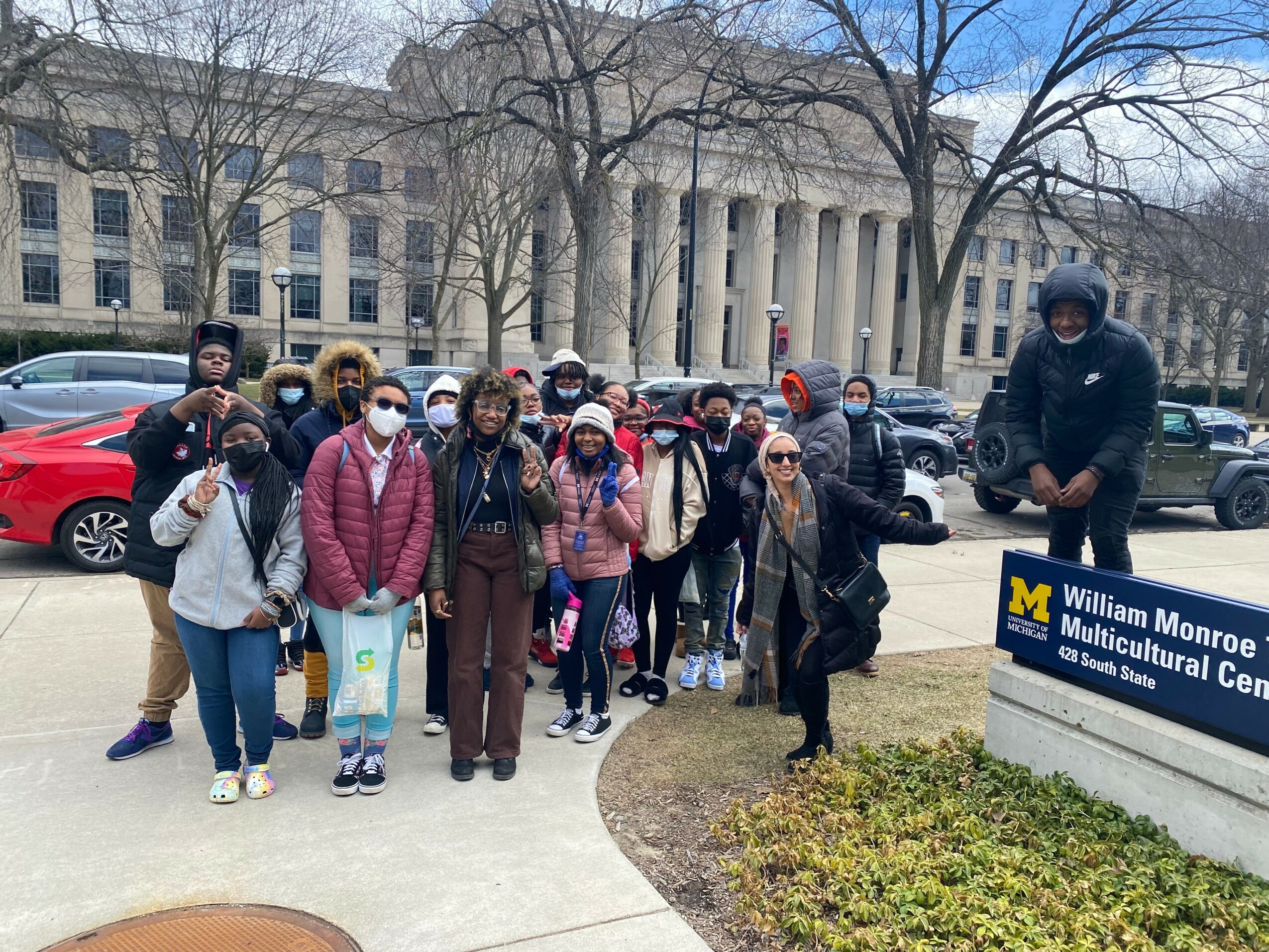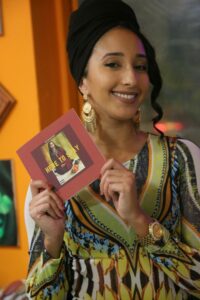
Today we’d like to introduce you to Bayan Founas.
Bayan, we appreciate you taking the time to share your story with us today. Where does your story begin?
My story begins with me being an avid reader since I can remember. My mother would take me and my siblings to the public library to do our homework after school and on the weekends, and so I was always surrounded by books. I would even go in the summer and take a stack of books home every week to keep me company while school was out.
I then became fascinated with visual art beginning in high school and fell in love with artists like Banksy, Jean Michel Basquiat, Frida Kahlo, and Kehinde Wiley for their use of art to make a critical statement on society. In college, I was extremely active in organizing for Palestine and the Boycott, Divestment, and Sanctions movement at the University of Michigan. During this time, I voraciously read, watched, and participated in anything that taught me about the reality of the world we live in. I was thirsty for knowledge and raising my social consciousness. By default, I entered the realm of Hip Hop and was mesmerized by its underground scene of conscious rap. I met artists like Immortal Technique, Shadia Mansour, and Invincible who merged social activism with writing rhymes. I began to make sense of my identity and belonging as a fire was blazing in my spirit.
One day, I stumbled upon a Def Jam poetry video of New Yorker Suheir Hammad reciting “First Day Since” and was awestruck by this Palestinian-American woman who spoke of experiences that I related to firsthand. Not only did she speak with such fierce elegance, but she legitimized my experiences as an Arab American and Muslim woman in a country that demonized us. I told myself I would be on a stage like her one-day spitting words of resistance. Little did I know this would happen sooner than I thought when I began working with youth in Detroit after I graduated college. I joined Americorp’s City Year program and was working as an academic and behavioral interventionist in high school English classrooms. I volunteered to lead lunch rehearsals for the school’s annual poetry show while I witnessed students’ vulnerability in sharing their deepest stories filled with raw emotion. I was so moved by their courage that I began to write a poem that I would share at the poetry night. It was my first time ever performing and of course I forgot the words in the middle of my performance. Nevertheless, I was high off the feeling of sharing my story and connecting with my students and their parents after the show.
From there, I slowly began hitting up open mics, hosting some of my own, and co-founded a couple of poetry collectives that flourished my writing and performance skills. It was in these spaces that I was constantly inspired to keep writing to keep our history alive. I knew it wasn’t just my story to tell, but all the others before me and after me that I was writing for. It was for the girl like me watching Suheir Hammad affirming my existence.
Can you talk to us a bit about the challenges and lessons you’ve learned along the way? Looking back would you say it’s been easy or smooth in retrospect?
Of course, with putting yourself in the public eye, there will be struggles. When it was first new to me, I took public criticism harshly and personally, which really affected my mental health. After time, I began to understand that all people who put their work out there are prone to public criticism. It’s a part of the job description. I remember looking at Amazon reviews for one of Angie Thomas’s books and couldn’t believe the hate and negativity she was getting. So, it just reminded me to keep going because even best-selling authors get criticized. I mean some of the most influential people were hated and assassinated. Long live Malcolm and Tupac. Two writers and leaders who embodied the revolutionary spirit that I strive for. I’m inspired by how they were so real and courageous with their message, despite the continuous challenges from the public and from their own communities. My good friends and counselor once told me that I must be doing something good to get people to talk.
Also, being an artist in this technological age is very consuming and exhausting, mentally and physically. Sometimes I take breaks from posting online because I just don’t even want to be on social media, period. I notice I’m generally happier and more content with myself when I avoid scrolling online and seeing what other people are doing. It just distracts me from my own strengths and successes.
Another challenge as a writer and artist is that we must always be aware and knowledgeable on current affairs and history. But the more you know, the more pain you consume as a byproduct of learning the atrocities and oppression that people have faced and continue to face. It’s a personal sacrifice to constantly learn about these things (and sometimes live it) and then record it in writing. Writing and art are a sacrifice to our own mental health, but at the same time, it is for the good of the people and the people after us to keep true history alive.
Can you tell our readers more about what you do and what you think sets you apart from others?
My professional educational background is in Detroit, where I have served as a youth mentor, high school tutor, English teacher, and director of youth poetry programs for nine years. I am also a poet and author, and self-published two poetry books, Diary of a daughter in Diaspora in 2018, and Here to Stay: The Literary Mixtape, which is also a spoken word album.
I am very passionate about educational justice and freedom for communities of color and so I am committed to contribute to a positive educational transformation in Detroit classrooms. Being an anti-bias and anti-racist educator is extremely important to me and the work I do in schools. My teaching philosophy is stemmed in culturally responsive pedagogies, transformative justice education, and abolitionist teaching. I believe classrooms should be student-centered where students have a voice in what we learn and how we learn. Being mindful of a whole child (their identities, where they come from, their physical and mental well-being, their interests) acknowledges a student’s humanity, making them feel more comfortable and accepted in the classroom. This connection to students is invaluable to me as it allows me to build genuine relationships with students and build a positive and safe learning environment where real learning can occur. Thus, in my classroom, I strive to hear laughter, see infinite creativity, and feel genuine joy.
If you had to, what characteristic of yours would you give the most credit to?
Hustle. I’ve always had a hustle spirit and mentality since I was a kid. Always wanting to be the best. Always working hard towards my goals and feeling satisfaction for achieving them knowing the hustle I put in to get there. It’s all about the journey and how we get there; it’s not necessarily always about the end game. Who I am is a product of everything that has happened to me. From the people who loved me to the people who hated me, they made me who I am, so I thank you for all that.
Pricing:
- Diary of a Daughter in Diaspora: 20
- HERE TO STAY: 25
- T-shirt: 35
- Hoodie: 50
Contact Info:
- Website: www.bayanfounas.com
- Instagram: https://www.instagram.com/bayanthepoet/?hl=en
- Facebook: https://www.facebook.com/bayanthepoet/
- Twitter: https://twitter.com/bayanthepoet?lang=en
- Youtube: https://www.youtube.com/channel/UCVjGiurRNwR1F5mhVKSk63Q
